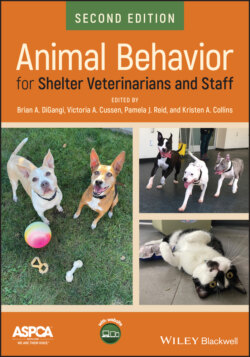Читать книгу Animal Behavior for Shelter Veterinarians and Staff - Группа авторов - Страница 65
2.6.2 Hunting
ОглавлениеCats are highly motivated to hunt. In fact, hunger and recent feeding behavior may reduce consumption and time spent hunting but not the motivation to stalk and capture prey (Fitzgerald and Turner 2000). Cats may even stop eating if the opportunity to hunt and kill presents itself during a meal. A cat may eat 10 to 20 small meals throughout a 24‐hour period, although this may be concentrated to crepuscular periods in free‐roaming cats but spread throughout the day for housecats. In general, cats living in human homes tend to take on a more diurnal pattern like humans (Overall et al. 2005). Although hunting is a reflexive behavioral pattern displayed even if a cat is raised in isolation, maternal influence and early experience can shape hunting behavior and food preference (Kuo 1930, 1938). Cats are less likely to predate on small mammals if raised with these potential prey species from a young age, preferably starting during the two to seven weeks of age socialization period (Kuo 1938).
